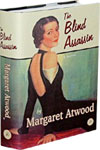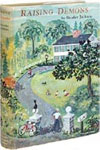Shipped in good Order and well conditioned. [Bill of lading for a cargo of coffee shipped from Nassau to Newport Rhode Island.]
[FRANKLIN (Benjamin), printer.]
From
Maggs Bros. Ltd ABA, ILAB, PBFA, London, United Kingdom
Seller rating 5 out of 5 stars
![]()
AbeBooks Seller since 15 May 2015
About this Item
Description:
A fine example of a "little job", from the press of Benjamin Franklin; a snapshot of Atlantic commerce in the years before the Revolution. Benjamin Franklin's manifold talents as statesman, writer, inventor and more, somewhat eclipse the fact that he was also considered to be Colonial America's most accomplished printer. An integral part of his Philadelphia printing initiatives were what he referred to as "little jobs". These short order imprints were often single-page affairs, catering to the needs of all manner of trades. Franklin's compositors and journeymen would set these forms, tickets, indentures etc, knowing that the job could be completed quickly without tying up too much of the printshop's type on the chase for any long period. "The importance of small jobs lay not so much in the amount of revenue they generated, but the fact that it was ready money. That is why Franklin stopped all other work to print them. Cash flow was a perennial problem for printers, and more generally, a shortage of cash was endemic in the early eighteenth-century American economy" (Green & Stallybrass, p.52). As in the case of these bills of lading, the forms were set, struck and reset many times. "Franklin usually printed these paper bills in duplicate form on a sheet of post paper. Since one copy was retained by the shipper and the other sent along with the goods shipped, these bills have almost invariably been preserved as single forms, many of them identifiable as BF printings by the engraved "S" since in the cut sheet only the form on the lower portion carried the Franklin imprint" (Miller, 184). This particular bill was made out at New Providence, Nassau in the Bahamas, to record the cargo consigned to a ship owned by Christopher Champlin, bound for Newport, Rhode Island. Signed by the ship's captain William Minturn, the commodities are described as "seventy five bags coffee & two tierces coffee on account and risk of the shippers and goes consigned to Mr Solomon Townsend merchts of Rhode Island". Beneath the ornamental "S" is a further inventory giving the markings on the various containers. A "tierce" is a measure of capacity equal to 42 wine gallons. The exporter, Christopher Champlin (1731-1799), was the son of a prosperous Narragansett planter who settled in Newport and established himself as a ship owner and financier. He won a victualling agents contract in 1764 to supply the British naval ships docked at Rhode Island, however when the Revolutionary War began, he remained loyal to the Colonies. Alongside the West India trade in coffee, he also dabbled in privateering and had dealings in the transatlantic slave trade. By 1763 the "coffee-house" culture made famous as a forum for revolutionary ideas in Georgian England, had firmly taken hold in the American colonies also. The introduction of coffee as a plantation crop in British Jamaica around 1730 also vastly increased the availability of this commodity to the North American market, and its production was intrinsically linked to the enslaved labour which was used in its cultivation. There is potential for tracing the Caribbean origins of the coffee in this cargo from the listed markings on the bags, distinctive to individual plantations and producers. The survival rate for these ephemeral Franklin imprints is extremely low: "In the twenty years during which Franklin was sole proprietor of his printing business, he printed at least 228 such small jobs, of which 201 are lost and known only from his records" (Green & Stallybrass, p.49). This particular setting of the bill of lading is a variant of that recorded in Miller. Examples of his bills of lading are held at Yale, American Philosophical, Penn, AAS, Clements, Library Company of Philadelphia & UC Berkeley. Not in Evans. cf. Miller, C. William, Benjamin Franklin's Philadelphia Printing: 1728-1766, 184; Campbell, Franklin Imprints at the Curtis Publishing Company, cf. 477 & cf. 702; Green, James N & Peter Stallybr. Seller Inventory # 251955
Bibliographic Details
Title: Shipped in good Order and well conditioned. ...
Publication Date: 1763
AbeBooks offers millions of new, used, rare and out-of-print books, as well as cheap textbooks from thousands of booksellers around the world. Shopping on AbeBooks is easy, safe and 100% secure - search for your book, purchase a copy via our secure checkout and the bookseller ships it straight to you.
Search thousands of booksellers selling millions of new & used books
New & Used Books
New and used copies of new releases, best sellers and award winners. Save money with our huge selection.
Rare & Out of Print Books
From scarce first editions to sought-after signatures, find an array of rare, valuable and highly collectible books.



